The Best Foods To Boost Your Energy Naturally
Feeling tired or low on energy all day? The foods you consume play an important role in maintaining your energy levels. While many people rely on quick fixes like caffeine or sugary snacks, these can lead to energy crashes.
Instead, turning to natural, nutrient-rich foods can offer sustainable energy, boosting mental & physical performance. Incorporating foods high in complex carbohydrates, healthy fats, fiber & essential vitamins and minerals can help maintain energy levels throughout the day.
This article explores some of the best natural foods that provide long-lasting energy while promoting overall health and vitality.
Top Foods For Natural Energy
1. Oats: A Steady Source of Carbohydrates
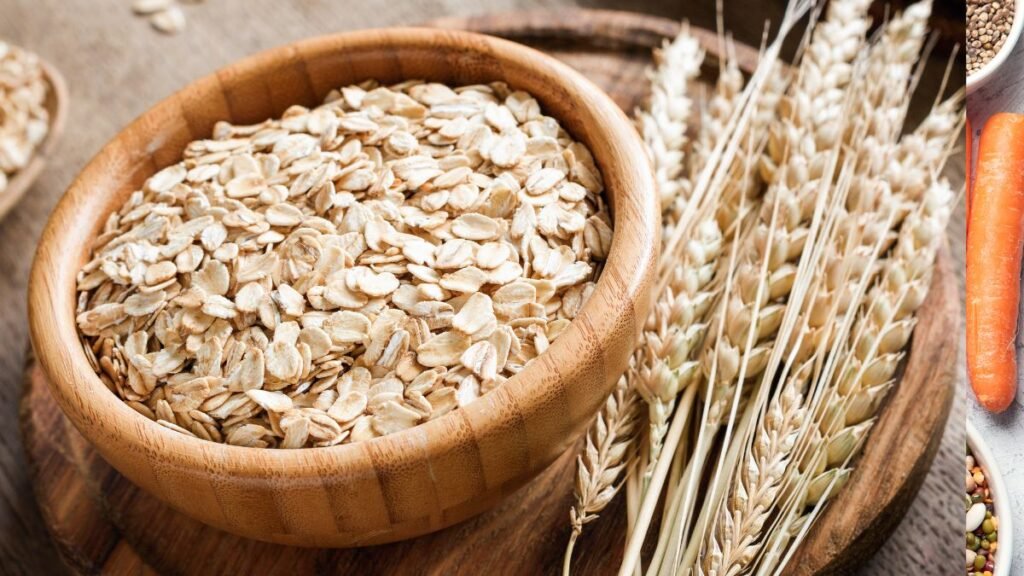
Oats have lots of healthy carbs that give you energy slowly to help you stay energized all day. They’re also high in fiber, which helps to stabilize blood sugar levels.
Start your day with a bowl of oatmeal to avoid the dreaded mid-morning crash. Oats contain essential vitamins such as B1 and magnesium, crucial for energy production.
How to Include More Oats in Your Diet:
- Eat a hot bowl of oatmeal with fruits and nuts on top.
- Try overnight oats for a quick, no-cook breakfast.
- Add oats to smoothies for extra fiber and energy.
2. Bananas: Nature’s Energy Bar
Bananas are often called nature’s energy bar for a reason. They are rich in potassium, fiber, and carbohydrates, which provide a quick energy boost.
Bananas contain natural sugars like fructose, glucose, and sucrose, which enter your bloodstream for an instant lift, while the fiber ensures this energy is slowly released.
How to Incorporate Bananas:
- Eat a banana before a workout to fuel your muscles.
- Put banana pieces in your morning cereal or yogurt.
- Blend bananas into a smoothie for a post-workout energy boost.
3. Nuts: Protein and Healthy Fats
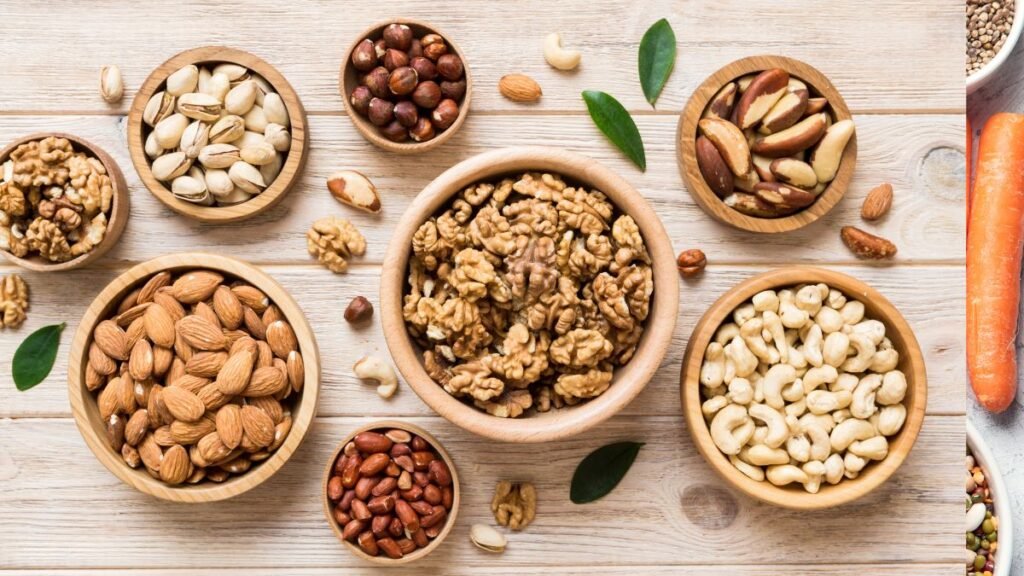
Nuts like almonds, walnuts, and cashews are energy powerhouses. They are packed with protein, healthy fats & fiber, which make them an excellent snack for sustained energy throughout the day. They also contain magnesium, an essential mineral for breaking down glucose into energy.
Pro Tip: Magnesium deficiency can lead to feelings of tiredness, so incorporating magnesium-rich foods like nuts into your diet can help prevent fatigue.
Ways to Eat More Nuts:
- Snack on a handful of almonds or mixed nuts between meals.
- Add chopped nuts to your salads or oatmeal for a crunchy texture.
- Spread nut butter on toast or apple slices for a quick snack.
4. Sweet Potatoes: Slow-Releasing Carbs
Sweet potatoes are a great source of healthy carbs, making them ideal for long-lasting energy. They are also fiber-rich, which means they’ll keep you feeling full for longer without causing a rapid spike in blood sugar levels. Sweet potatoes’ high vitamin A levels also support overall immune function, which can help you feel your best.
How to Include Sweet Potatoes:
- Cook sweet potatoes in the oven to serve with your meals.
- Cook sweet potato fries instead of regular fries for a healthier option.
- Put mashed sweet potatoes in soups and stews to make them healthier.
5. Eggs: Protein for Sustained Energy
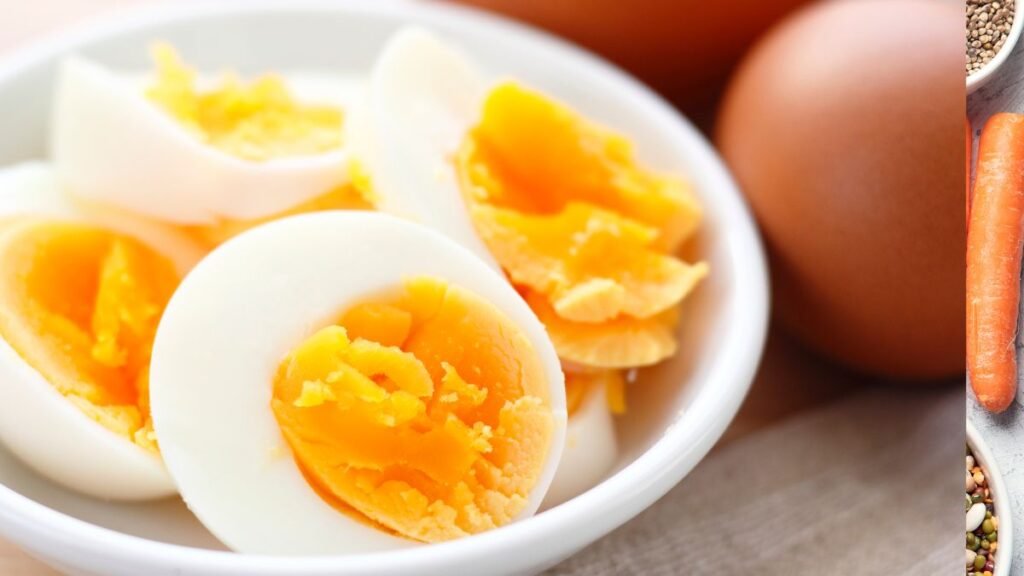
Eggs are a great source of good protein and have all the important amino acids. This helps with building and repairing muscles, which is important for having energy all day. The B vitamins in eggs, like B12, help make energy by changing food into energy.
How to Include More Eggs in Your Diet:
- Scramble or poach eggs for breakfast or lunch.
- Boil eggs in advance and enjoy them as a portable snack.
- Add eggs to salads or rice bowls for extra protein.
6. Greek Yogurt: Rich in Protein and Probiotics
Greek yogurt is an energy-boosting snack due to its high protein content. Protein slows down how fast your body breaks down carbs, which can keep your blood sugar steady and give you lasting energy.
Greek yogurt has probiotics that help with digestion and can reduce bloating and discomfort, which can make you feel less tired.
Ways to Enjoy Greek Yogurt:
- Have Greek yogurt topped with fruits and nuts for a balanced snack.
- Use thick yogurt from Greece as a starting point for smoothies.
- Add it to savory dishes like tacos or soups as a creamy topping.
7. Spinach: A Green Powerhouse
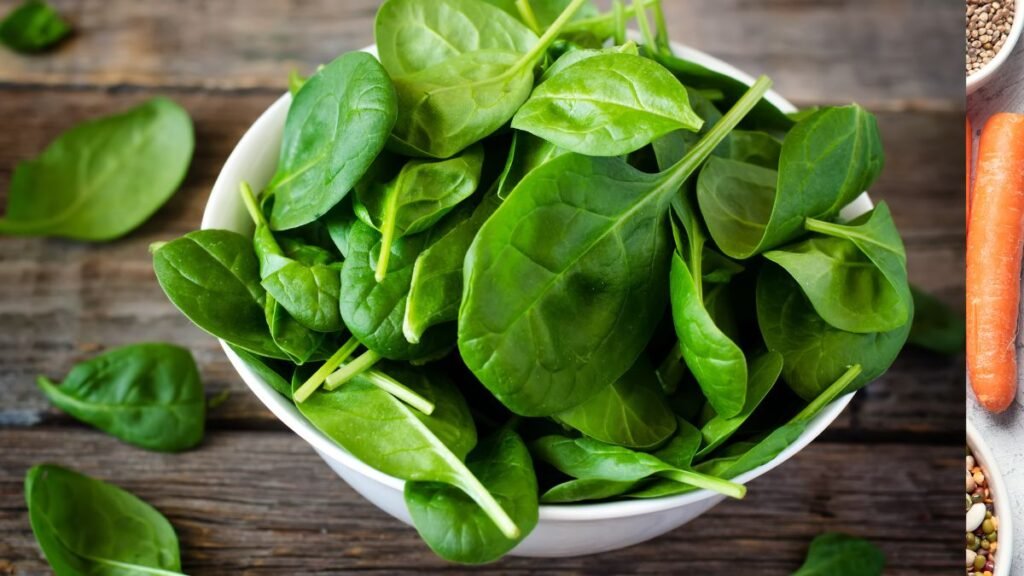
Spinach has a lot of iron, a mineral that helps red blood cells carry oxygen to your muscles and other body parts.
Not having enough iron can make you tired, so it’s essential to eat spinach and other foods with iron to keep your energy up. Spinach also contains magnesium, which plays a significant role in energy metabolism.
How to Add Spinach to Your Diet:
- Use fresh spinach in salads or smoothies.
- Sauté spinach with garlic for a quick side dish.
- Add spinach to soups, casseroles, or omelets for an energy boost.
8. Quinoa: A Complete Protein
Quinoa is often called a superfood because it is one of the few plant-based foods that provides complete protein and contains all the essential amino acids.
This makes quinoa an excellent energy-boosting food for those following a plant-based diet. It’s also rich in magnesium, iron, and fiber, which help maintain steady energy levels.
Ideas for Incorporating Quinoa:
- Serve quinoa as a base for salads or grain bowls.
- Use quinoa in place of rice or pasta for a more nutrient-dense meal.
- Add cooked quinoa to soups or stews for a protein boost.
9. Apples: High-Fiber Fuel
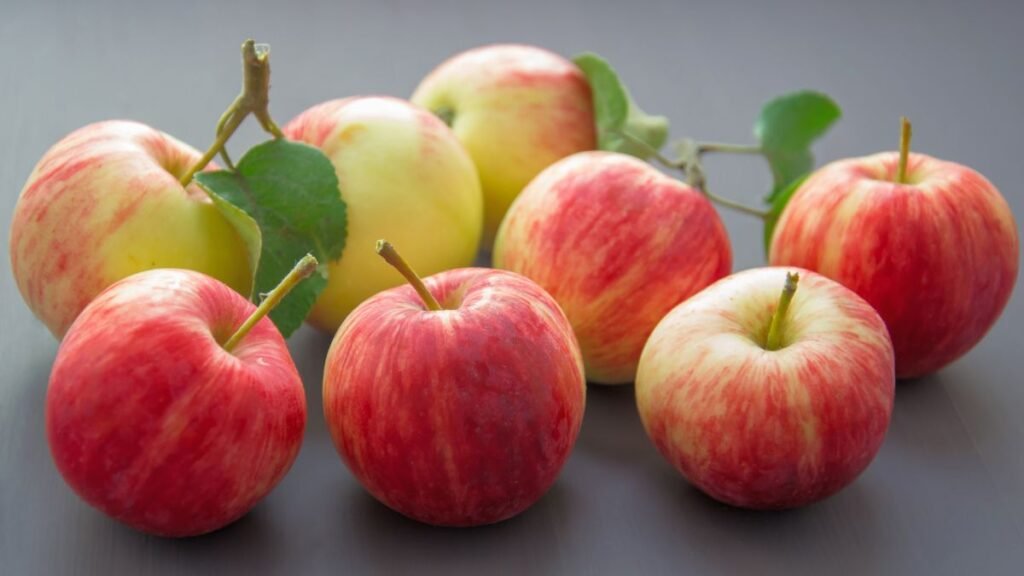
Apples are an easy, portable snack rich in fiber and carbohydrates. The natural sugars in apples give you a quick burst of energy & the fiber helps release the energy slowly.
Apples also contain antioxidants like flavonoids, which help reduce inflammation and support overall well-being.
How to Enjoy Apples:
- Combine apple slices with nut butter for a healthy snack.
- Chop apples into your morning oatmeal or yogurt.
- Add apple slices to salads for a sweet and crunchy twist.
10. Dark Chocolate: The Healthy Treat
Dark chocolate (70% cocoa or higher) can give you an instant energy boost thanks to its caffeine and theobromine content.
It also contains antioxidants, which improve blood flow to the brain and muscles, further enhancing energy levels. The small amount of sugar in dark chocolate is also enough to boost energy without causing a crash.
How to Eat More Dark Chocolate:
- Have a small piece of dark chocolate with your afternoon coffee or tea.
- Melt dark chocolate and drizzle it over fruits for a healthy dessert.
- Add dark chocolate chips to yogurt, oatmeal, or smoothie bowls.
Conclusion:
Incorporating these energy-boosting foods into your daily meals can help you fight fatigue and maintain steady energy throughout the day.
Each food explicitly supports your body’s energy needs, from nutrient-dense proteins to fiber-packed fruits and complex carbohydrates. By focusing on whole, natural foods, you can enjoy both short-term and long-term benefits, from improved mental clarity to physical stamina.
Next time you feel your energy levels drop, reach for one of these nutrient-rich options instead of sugary snacks or caffeine. Your body will thank you with sustained energy and better overall health.